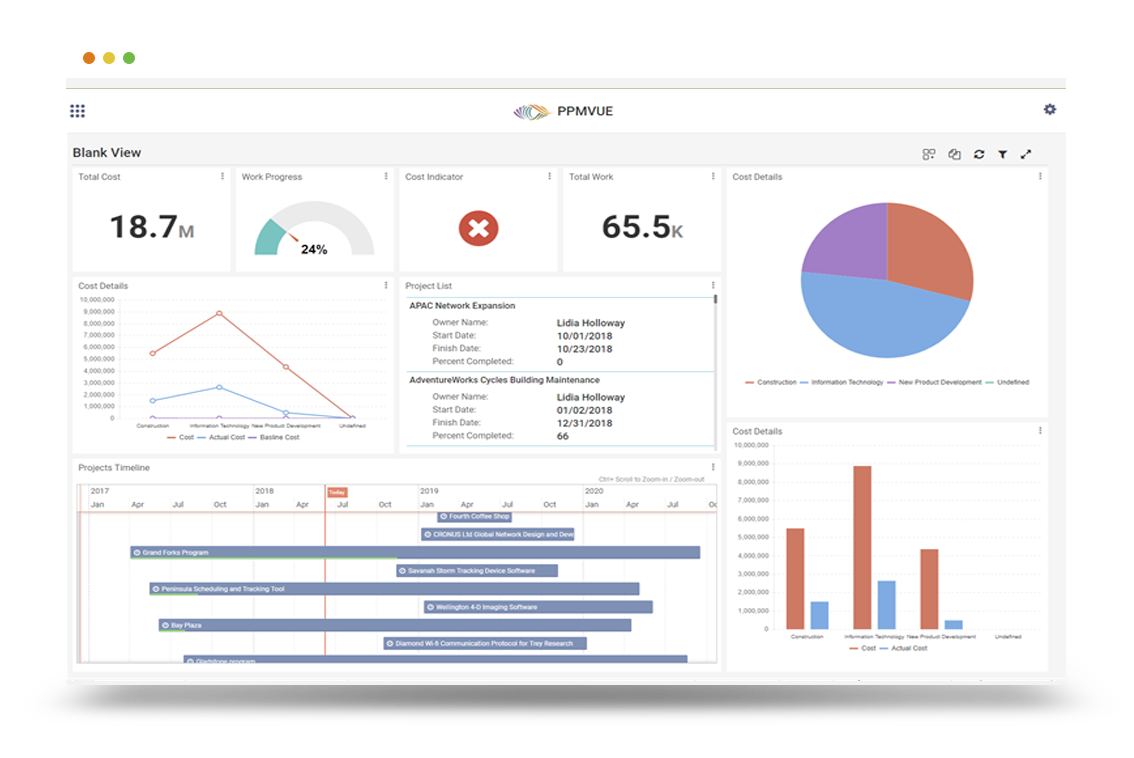Earned Value (EV) is a method for measuring project performance.; it combines three parameters: scope, schedule and cost in a single integrated system. Earned Value provides you with a factual way of measuring project performance and predicting project outcomes. It enables you to report progress with greater accuracy and forecast any issues/risks ahead of time. This helps upper management to make cost and time based decisions.
To assess your project performance, the following information is required:
- Planned Value (PV): The approved budget for the work to be completed by a specified date, also known as the budgeted cost of work scheduled (BCWS).
- Earned Value (EV): Estimated value/worth of completed work by the specified date, also known as the budgeted cost of work performed (BCWP).
- Actual Cost (AC): The costs actually incurred for the work completed by the specified date, also known as the actual cost of work performed (ACWP).
Monitoring your project’s progress involves determining whether you are on, ahead of or behind schedule and on, under or over budget. The following indicators are useful in gauging your project performance:
Here is a list of benefits that EV has to offer:
- Integrates scope, schedule and cost into one system.
- Improves the planning and forecasting process.
- Provides early indication of any risks or issues.
- Improves project accountability.
- Contract type does not alter EV calculations.
Interested in learning even more about how EPMA can help you with your Project Management skills? Contact us at [email protected] or call us at 1.888.444.EPMA
Thanks for reading! Please feel free to leave comments below or check out our other blogs on Microsoft Project, Project Server, SharePoint and Project Management Methodology.

